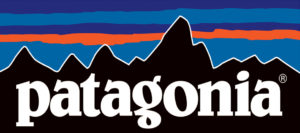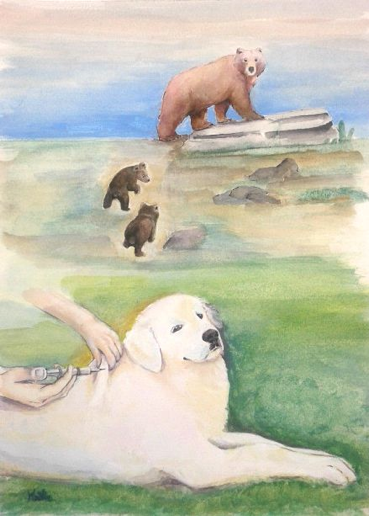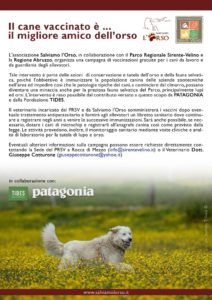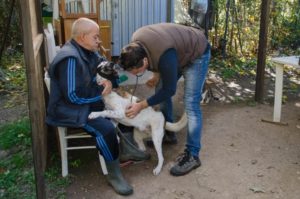Caring for dogs saves the bears
Extraordinary campaign of vaccination of stray dogs and sheepdogs in the Marsican brown bear’s home range
A project by Mario Cipollone and Adriano Argenio
The successful conservation of the remaining population of Marsican brown bear is undoubtedly linked to the correct management of the ecosystems in which this species survives. The small population of the Marsican bear has a limited ability to adapt to quick environmental changes. One of these changes may be the introduction of a new pathogen or the increased presence of a common pathogen. The high vulnerability of the small remaining population of Marsican brown bear means that we should not underestimate any potentially negative signal from the environment. Some potentially dangerous diseases for bears, such as distemper, parvovirus, leptospirosis and infective canine hepatitis, can be transmitted by dogs. The transmission of disease between dogs and bears can be dramatically reduced with the use of vaccinations and the correct management of dogs.
Location
The Project will be carried out in the current home range of the Marsican brown bear, as indicated by the PATOM (Action Plan for the Conservation of the Marsican Bear). This area is about 1,500 – 2,500 km2 in area, and it covers three Regions (Abruzzo, Molise and Lazio). Under a sanitary point of view, it involves:
- 3 Regional Veterinary Services,
- 2 Istituti Zooprofilattici Sperimentali (veterinary public health institutes),
- 5 ASL (NHS primary care trust).
The priority area of intervention will be the Abruzzo, Lazio and Molise National Park and its Buffer Zone, officially considered as the core area of the Marsican bear.
Main purpose
Conservation of ecosystems and species with genetic variability.
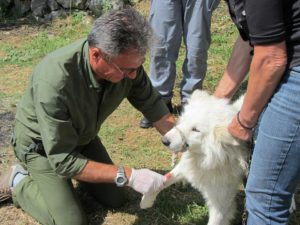
Significance
The Marsican brown bear is a “umbrella species”. It needs large and interconnected habitats to survive. This means that management schemes related to protecting this species will have a positive effect on the conservation of other wild species (especially the wolf) and domestic animals that share the same environment. Effective management of the Marsican brown bear could also help to improve the management of traditional human activities such as sheep farming.
In 2014 the Project will be carried out in cooperation with the Department for Conservation of Nature of the Abruzzo Region, already committed to the implementation of the C2 Action of LIFE Arctos “Conservation of the brown bear: coordinated actions for Alpine and Apennine territories”.
Goals
The Project aims to:
- Implement a management strategy that leads to an increase in registration on the Canine Registry and an increase in vaccinations of dogs in the home range of the Marsican brown bear;
- Promote the knowledge and conservation of the Marsican brown bear;
- Involve and direct the Institutions to finance and implement actions to control stray dogs in the Marsican brown bear’s home range.
The above-mentioned goals will be achieved through the following actions:
- A large-scale campaign of vaccination and registration on the Canine Registry for the dogs in the Marsican brown bear’s home range.
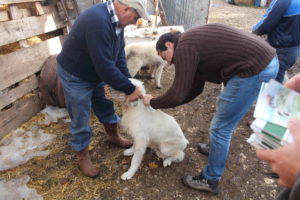
According to instructions of the competent Municipality, we will establish a laboratory in which to register dogs into the Canine Registry and perform vaccinations of sheepdogs. The laboratory will be opened at times drawn up in the main Municipalities in the Marsican brown bear area and coordinating with the Mayors and with the Veterinary Services of the local health authorities. The days for vaccinations will be punctually advertised on the website, on the Facebook page of Salviamo l’Orso and on the pages of local newspapers.
In 2014 the vaccines were provided by the Department for the Conservation of Nature of Abruzzo Region, according to the C2 Action of Life ARCTOS Project “Conservation of the brown bear: coordinated actions for Alpine and Apennine territories”.
The funds of the Project will be used to buy microchips. In each municipality there is a veterinary doctor in charge of vaccinating dogs and registering them into the Canine Registry. The presence of a Veterinary doctor at the laboratory will be able to provide important and professional advice to dog owners.
- An awareness campaign for dog owners in the Marsican brown bear home range.
Salviamo l’Orso will launch an awareness campaign to encourage dog owners in the Marsican brown bear’s home range to vaccinate their dogs and not let them roam free without strict control. Articles in local newspapers will be published and the members of Salviamo l’Orso will visit a school in each municipality where vaccinations take place, to explain to the children why these measures are important to implement. It will provide an ideal opportunity to talk to the younger generations about the conservation of the Marsican brown bear, and the importance of wildlife for the balance of all ecosystems.
- “Lobby action” in order to encourage and direct Institutions to finance and implement actions to control the stray dogs in the Marsican brown bear’s home range.
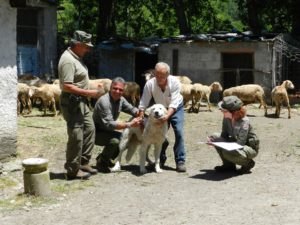
Salviamo l’Orso will organize several meetings with the Mayors of the municipalities in the Marsican bear’s home range in order to reach a shared solution to stray dogs. The awareness and vaccination campaigns are unlikely to be completely effective if not combined with management interventions which lead to a reduction in the number of stray dogs which roam without control in the Marsican brown bear’s home range.
The Anglo-Italian Society for the Protection of Animals (AISPA) is a non-profit organization based in the United Kingdom. Since 1952, it has raised funds every year all over the world and allocated them to sponsored organisations which are devoted to the protection of animals in Italy.
In 2015 they gave financial support and guidance to over 30 projects, helping to care for thousands of animals in Italy.
Salviamo l’Orso’s project “Caring for dogs saves bears” is one of the projects supported by AISPA.
For more information on AISPA visit: http://aispa.org.uk/
Budget
8.000 USD from Patagonia & Tides Foundation
Duration
2014-2015
NB: A donation of 6,000 GBP from AISPA (Anglo-Italian Association for the Protection of Animals) allowed the project to continue into 2015 and 2016.
Reports 2014 - 2019
1. Promotion for the vaccination and microchipping campaign in the area of intervention
Vaccination and microchipping actions were timely promoted and advertised in the areas of intervention with posters and banners on the Facebook page of Salviamo l’Orso.
In partnership with local authorities, posters promoting vaccinations were printed and posted in towns where the vaccination and microchipping program was to be conducted.
The top slogan reads “A vaccinated dog is the bear’s best friend!”.
2. Vaccination
Vaccinations were carried out by professional veterinaries. Dogs unlisted with the Canine Registry were microchipped and registered.
In 2015 in the Sirente-Velino Regional Park, Vet. Giuseppe Cotturone vaccinated 87 dogs from different sheep and goat farms in the mountains of Celano, Ovindoli and Rocca di Mezzo. He vaccinated and microchipped other 150 dogs in Magliano dei Marsi and other municipalities.
Monte Genzana Alto Gizio Regional Nature Reserve (MGAGRNR)
In November 2015 Vet. Fabio Lo Foco vaccinated 19 dogs and microchipped 12 dogs in Pettorano sul Gizio and Rocca Pia, in the MGAGRNR, an area of vital importance for the bear’s future, because it is a wildlife corridor between The Abruzzo, Lazio and Molise National Park and the Majella National Park. More dogs could have been vaccinated and microchipped, but unawareness and negligence by some citizens and local administrators has slowed down further vaccinations.
3. Public presentation of the project outcomes
On June 20, 2015, Salviamo l’Orso participated to an Erasmus Plus for associations in Zaragoza, Spain. During the workshop, Salviamo l’Orso presented the project Caring for dogs saves the bear and other conservation projects to an international audience.
On August 18, 2015, Salviamo l’Orso presented this project in Rocca Pia as one of the actions of the Bear Smart Community project in the Monte Genzana Alto Gizio Nature Reserve.
written by Luca Tomei and reviewed by Patrizia Grigolo
In 2017 Salviamo l’Orso carried out a veterinary activity aimed at vaccinating sheepdogs from the livestock farms, at the border of the Abruzzo, Lazio and Molise National Park (ALMNP). Specifically, it took place in the Roveto Valley, an ecological corridor for the expansion of the Marsican brown bear to the Ernici and Simbruini mountains, and in Marsica, an area connected to the Sirente Velino Regional Park. The vaccinations were carried out by Dr. Luca Tomei, a volunteer vet of the Association, against the main infectious diseases of the dogs, which can also be transmitted to wild carnivores, wolves and bears in particular.
The vaccination campaign, aimed at immunizing working dogs outside of the ALMNP, represents a continuation of the activity carried out in 2016, in collaboration with the ALMNP and ENPA within the Park territories and the Park’s buffer zone.
In 2017, the Roveto Valley was home to 6 bears, including a female with 3 cubs. 13 livestock farms were involved, some of them located over 1,000 meters above sea level, spread over the territories of 4 municipalities. In total, 31 dogs were vaccinated, almost all Abruzzo mastiffs.
In the Marsican area, the activity took place in Rosciolo dei Marsi, where 25 dogs from the local livestock farms were vaccinated. Here too, most of them were Abruzzo mastiffs.
For this project, the vaccines used were from the 2016 campaign. Part of the vaccine inventory, also partially used in 2017, was donated by Salviamo l’Orso to the dog shelter of Lecce dei Marsi, to improve the health conditions of the environment of the Marsican brown bear.
Though the activity already achieved good results, since most of the dogs treated had never been vaccinated, it will certainly be expanded in the coming years to the Roveto Valley, so that the local livestock farms can get involved in a more timely fashion.
As a matter of fact, many farms did not join, despite an early vaccination campaign via posters and word of mouth throughout each town of the valley. Some farms did not join because of reticence, others because they were not aware of it.
For 2018, it would be desirable for the ALMNP to promote this vaccination campaign again.
Spreading the information among breeders is a financial commitment, but above all it’s a logistical responsibility, so that a larger number of livestock farms can be involved and more of the Roveto Valley be covered, being an increasingly important area for the future of the bear.
Furthermore, the activities could also include the registration of dogs without microchips, to counter the stray dog population and hold breeders more accountable.
by Dr. Luca Tomei, DVM
Veterinarian of Salviamo l’Orso ONLUS
translated by Giulia Pace and Patrizia Grigolo
The Marsican brown bear is a unique animal, that it lives, feeds and reproduces exclusively in the mountains of the Central Apennines. As a vital element of the natural heritage of the area, it must be protected and preserved, and everyone involved is expected to do their part.
In order to avoid extinction, the Marsican brown bear needs to spread out of the Abruzzo, Lazio and Molise National Park, where its population has already reached the carrying capacity. The species needs to regain its primal habitat in natural areas such as the Ernici-Simbruini mountains, Majella, Sirente-Velino, Gran Sasso and Laga mountains, and as far as the Sibillini mountains and the Matese.
Therefore, we should no longer consider the Marsican brown bear to be confined to the Marsica sub-region, but rather live in the entire Central Apennines Park.
Salviamo l’Orso is a small organization that fights for the protection and conservation of the Apennine bear.
Among various initiatives, Salviamo l’Orso carries out healthcare activities based on the control of infectious diseases transmitted by domestic dogs to wild carnivores and on the reduction of the stray dogs’ population.
The plan concept of controlling infectious diseases in dogs, in the protected areas of the Abruzzo, Lazio and Molise National Park (ALMNP), is a natural continuation of the activity carried out in 2016 by Salviamo l’Orso in collaboration with ALMNP and ENPA (National Body for the Protection of Animals), which led to the vaccination of 1,103 dogs within the Park and its Buffer Zone, and the 2017 initiative, when 60 dogs were vaccinated in the Roveto Valley and Rosciolo dei Marsi.
The vaccination program was a response to the results presented by the ALMNP at the beginning of 2018, which suggested the high possibility of canine-to-bear transmission of numerous infectious diseases, such as parvovirus, distemper and infectious hepatitis, which are highly contagious and for which dogs can be vaccinated.
For this reason, the first active collaboration was formed with Abruzzo’s protected areas, located on the outskirts of the ALMNP.
These areas are essential environmental corridors for the expansion of the Apennine brown bear, into the large neighbouring protected areas.
The Reserves involved in the project were: the Gole del Sagittario Regional Natural Reserve and WWF Oasis in the municipality of Anversa degli Abruzzi, Monte Genzana Alto Gizio Regional Nature Reserve in the municipality of Pettorano sul Gizio and Zompo lo Schioppo Regional Natural Reserve in the municipality of Morino, which are all able to act as wildlife corridors for the Apennine brown bear to reach Sirente Velino Regional Natural Park, Majella National Park and Ernici-Simbruini Mountains respectively.
The dog vaccinations and healthcare activities involved livestock farms in the municipalities of Balsorano and Civita d’Antino in the Roveto Valley, and in Rosciolo dei Marsi in the Marsica subregion, the ‘northern gate’ to the ALMNP. The Roveto Valley is a fundamental wildlife corridor connecting the ALMNP and the Ernici-Simbruini mountains, which are considered to be the most suitable environment for hosting a new brown bear metapopulation.
In addition, these last few years have seen a stable presence of the Apennine brown bear in these areas, as verified by several sightings. These areas are therefore of utmost importance for the bear and need to be protected and preserved with increasing urgency.
Goals
- Protection of the wildlife in the territories within the above-mentioned Protected Areas, with a particular focus on the Apennine brown bear and the Apennine wolf.
- Vaccinate the entire canine population of the livestock farms working within these Protected Areas against the main infectious diseases, reducing the possibility of transmission to the local wildlife.
- Raise awareness in farmers about the correct management of sheepdogs.
- Improve the health, nutrition and well-being of sheepdogs.
- Reduce the stray dogs’ population by microchipping and registering them with the regional canine registry.
Outcome
The activities involved Dr. Luca Tomei (author), volunteer Veterinary Physician of Salviamo l’Orso and promoter of the project, and the Directors of the Protected Areas in which the action was carried out, who responded very positively to the initiative and directly participated in the field.
In total, the whole activity took 8 working days spread out during the summer months, with the work being done in just a few days and at a very fast pace. 20 livestock farms were involved in the process. These were both small family farms, with few animals and 1-3 dogs, and large livestock farms with more than 1,000 sheep and goats and about 40 dogs guarding the herds.
Some livestock farms were located at a high altitude, with sheep pens at over 1,000-1,200m above sea level.
A total of 151 dogs were checked and vaccinated, most of them medium-large size adult dogs and mainly Abruzzo sheepdog breed and crossbreeds. All dogs which had not been treated in the previous 3 months were also given medication for intestinal parasites.
In total, 68 dogs were microchipped and registered with the regional canine registry.
During these activities 6 dogs that were difficult to treat, even by the owner, were tranquillized using a blow-dart. At the end of the procedures all dogs woke up quietly and without complication.
Summary
The initiative was well received and local livestock breeders were contacted and invited to join the project. The local farms were also excited to be part of the project – most of the farms operating in the Protected Areas were reached. The project proved to be a success; in that it shows how farmers who work in the mountains every day are aware of the importance of protecting wildlife.
Many dogs had already been vaccinated and were found to be in good health and properly fed. It was necessary to microchip almost half of the dogs treated, thus continuing to educate dog owners about the importance of registering their dogs, also to reduce dog abandonment and consequent stray dogs’ population.
Circumstances are different for the livestock farms that work outside of the Protected Areas, in particular those in the Roveto Valley and Rosciolo dei Marsi. Farmers contacted in these areas responded very positively to the initiative, but many owners complained about the difficulties related to their work. Several farms shut down in the Roveto Valley compared to the previous year and several dogs were poisoned in 2018 in that area.
The greatest disappointment for the farmers was the compensation system used to determine wildlife damages, both in terms of the low refund rate for predated animals, (IF they are reimbursed at all), and of the disposal of carcasses. They must in fact dispose of them at their own expense, instead of being allowed to leave carcasses with no disease in the woods, as food for wildlife. Low compensation for the actual number of livestock reimbursed (if they are not found they are not reimbursed) and the amount of the refund, plus the high costs of carcasses disposal, can trigger retaliation on wildlife (using firearm weapons and/or poisoned baits).
Since the farmers who work in these areas are the first custodians of the mountains and their animals, a roundtable discussion among all stakeholders would be desirable to minimize conflicts and to better protect wildlife.
The conservation and the future of the Apennine brown bear is in the hands of all of us.
Every little action is a small step forward. We cannot afford to fail at this challenge and deprive our children and grandchildren of enjoying the presence of the most important and unique inhabitant of our mountains.
Special thanks to all the Directors of the Protected Areas who joined the project and who made their shoes dirty on the front line: Dr. Sefora Inzaghi, Director of the Gole del Sagittario Regional Natural Reserve and WWF Oasis; Dr. Antonio Di Croce, Director of the Monte Genzana Alto Gizio Regional Nature Reserve; Dr. Amilcare D’Orsi, Director of the Zompo lo Schioppo Regional Nature Reserve. Thank you all for your availability, commitment and devotion to your work. Special thanks also to Antonio Monaco and Mario Finocchi from the Valleluna cooperative from Pettorano sul Gizio for their valuable help.
Finally, a big thank you to all the breeders who participated in this initiative and who continue, despite the many difficulties, to carry on jobs and traditions that are being lost.
An auspicious wish goes to the Apennine bear at the end of a very unfortunate 2018: a wish that it may find the new spaces it needs in the very near future, whilst sharing them in a peaceful and respectful way with local human communities.
written by Luca Tomei and reviewed by Patrizia Grigolo
In 2019, the health activities of Salviamo l’Orso were in partnership with the small Abruzzo’s Regional Reserves, which are satellites of the Abruzzo, Lazio & Molise National Park (ALMNP): the Regional Nature Reserve and WWF Oasis Gole del Sagittario in Anversa degli Abruzzi (AQ) and the Monte Genzana Alto Gizio Regional Nature Reserve in Pettorano sul Gizio (AQ), important corridors connecting the ALMNP to the Majella National Park and the Sirente Velino Regional Park.
In addition, we involved the livestock breeders from Rosciolo, a hamlet of Magliano dei Marsi (AQ), north entrance to the ALMNP, and the breeders from the Roveto Valley, a crucial area for the expansion of the Marsican brown bear connecting the ALMNP to the Simbruini-Ernici Mountains.
The health activity was vaccinating dogs from farms in areas of Marsican bear activity to prevent the spread of infectious canine diseases, which can be transmitted to the Apennine wolves and bears. Furthermore, unregistered dogs were microchipped and registered with regional canine office. Dogs which were only a few months old and others which had not been treated in over a year have undergone anti-parasitic treatment for the main intestinal parasites.
The activities took place from June to October 2019. 20 farms in total were involved, all of them in the territories of two protected areas, which were partners in the initiative.
Most of the farms in Rosciolo dei Marsi and Valle Roveto were also involved in the vaccination campaign, although some breeders who avoided this activity will be included next time. 158 dogs were vaccinated, consistent with the positive results of 2018, and 40 dogs were microchipped, about one third of the total number of dogs treated. Only one dog had to be sedated by blowgun, as it was too feral and therefore too dangerous to treat with a standard approach.
On the farms, puppies and dogs that had not been treated for more than a year (a total of 25 individuals) underwent an anti-parasitic treatment for the main canine intestinal parasites.
This year we have met with breeders, specifically in the Roveto Valley, concerned about the issues of damage caused by wildlife, in particular that of bears and wolves, which resulted in a difficult compensation process, especially for farms outside the ALMNP buffer zone.
This initiative, which is not only a means to vaccinate and microchip domestic animals, it also provides support for livestock breeders, for their work and commitment and to assist with any difficulties they may face. For all these reasons, it is undoubtedly appreciated and it is also an achievement for the conservation of the Marsican brown bear.
Vaccinated dogs
– 77 Regional Nature Reserve and WWF Oasis Gole del Sagittario
– 28 Regional Nature Reserve Monte Genzana Alto Gizio
– 33 Roveto Valley
– 20 Rosciolo dei Marsi
Total 158
Microchips applied
– 16 Regional Nature Reserve and WWF Oasis Gole del Sagittario
– 7 Regional Nature Reserve Monte Genzana Alto Gizio
– 16 Roveto Valley
– 1 Rosciolo dei Marsi
Total 40
Dogs treated with anty-parasitary therapies
– 11 Regional Nature Reserve and WWF Oasis Gole del Sagittario
– 5 Regional Nature Reserve Monte Genzana Alto Gizio
– 9 Roveto Valley
Total 25
Dogs captured with teleanesthesia
-1 Regional Nature Reserve and WWF Oasis Gole del Sagittario
Farms involved
– 5 Regional Nature Reserve and WWF Oasis Gole del Sagittario
– 4 Regional Nature Reserve Monte Genzana Alto Gizio
– 9 Roveto Valley
– 2 Rosciolo dei Marsi
Total 20







